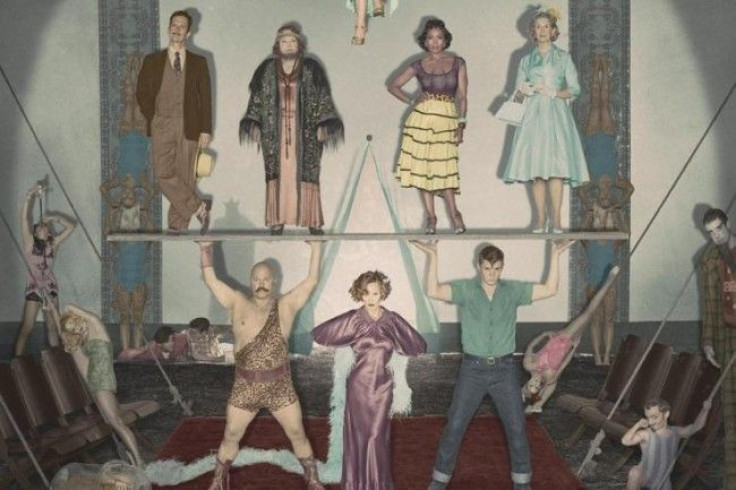
The fourth season of “American Horror Story” has not even premiered yet, and although there has been a significant amount of hype surrounding the FX mini series, new reports claim there is a surmounting controversy surrounding the title for the forthcoming installment—“Freak Show.” A new report from The Guardian states that “freak” is a slur, and the new FX show “American Horror Story: Freak Show” is in some means propagating this slur. The author of the piece, Howard Sherman, claims “the real horror story is the pop-culture return of a word meant to push the vulnerable back to the margins.” The article states that AHS ads, which are not only prolific but highly revered by fans of the popular TV series, are meant to associate the term “freak” and the people that are considered as such with something that is both “scary” and “strange.”
In this point he is not wrong, the advertisements, trailers, cast portraits and the characters themselves are meant to not only haunt viewers but provide true “horror,” hence the series name “American Horror Story.” Show runner Ryan Murphy has even teased to fans that this season of the series is set to be the scariest one yet, “I'm worried about people being too afraid of our clown. It's heart stopping what he does. I'm worried that people are going to have cardiac arrests.”
“Freak” as defined by Sherman is a “particularly ugly word when applied to a person with a disability” and again I do not disagree, however the term “Freak Show” is different and was most certainly not thought up by Ryan Murphy and the executives of FX, it is deeply engrained in America’s circus and carnival history. Additionally the term of “Freak Show” descends even further into history then 1950’s America, which AHS is depicting in it’s upcoming season. The term and business of “Freak Shows” first came about in 17th century England with Lazarus and Johannes Baptista Colloredo; the conjoined twins who frequented the court of King Charles I in the early 1640s. The “Freak Show” industry then reached its peak in both 19th century England and America as successful commercially run enterprises.
Sherman also claims that many people in both England and America presumably, though he does not say explicitly, went to “gaze with fascination, superiority and revulsion at people who, in some cases, could find no other employment.” In addition to citing no sources, or experts, or even another report, Sherman attempts to deliver fact when his observation is nothing more than an overarching belief of how sideshows and the performers operated. According to The Human Marvels, whose author J. Pednaud did consulting work on “American Horror Story,” contrary to popular belief the majority of performers at “Freak Shows” displayed themselves, not out of desperation or exploitation but instead due to the “massive financial and personal rewards” that came with being apart of the experience.
Sherman does admit that the term is historically accurate, but assumes that due to it’s resurgence in popular culture, the term will once again be to used in a derogatory sense to describe those who suffer from disabilities. However, it seems that the idea for “American Horror Story: Freak Show” came due to actress Jessica Lange’s desire to shine a light on the lost piece of history. In an interview with Entertainment Weekly, show runner Ryan Murphy revealed that Lange is a photographer who has always been interested in the carny world. He continued, “If you look at her photography, she's always interested in the lost and the forgotten and the beautiful survivor of it all.” Murphy also revealed that he too became fascinated with the carny world, I felt it was such a ripe world. The carny world, the freak shows really ended for the most part when television began. So one freak show replaced another so that was always the idea." Instead of being an offensive and derogatory, it seems that Lange found a beauty in the carny world and sought out the help of Murphy to bring the historical period to live on the popular series “American Horror Story.”
© 2024 Latin Times. All rights reserved. Do not reproduce without permission.
